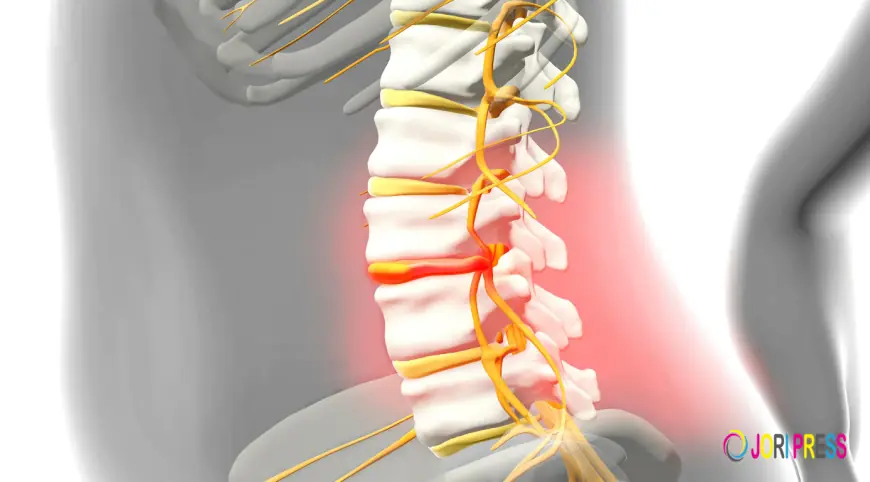What is Herniated Disc? Causes & Treatments
A herniated disc is a spinal disc injury in which the sensitive and gel-like center is damaged and causes pressure on the nearby nerves. This pressure results in pain, numbness or weakness in an individual.

A herniated disc is a spinal disc injury in which the sensitive and gel-like center is damaged and causes pressure on the nearby nerves. This pressure results in pain, numbness or weakness in an individual.
Causes of Herniated Disc:
The most common causes of the herniated disc condition are:
Degeneration: The disc generally wear down according to an individual’s age and which increases the chances of getting hurt by the condition.
Trauma: The pain or excessive strain that one would experience in the area due to injury or strain can lead to the disc to herniate.
Risk Factors:
The major factors that contribute to the herniated disc condition are due to lifting heavy weights, repeatedly twisting or bending, following an unhealthy or inactive lifestyle, smoking and more.
What are the main Symptoms?
When you suspect the herniated disc problem, the main and the most common symptoms that you generally observe are:
Pain: It is a burning like pain that would radiate to other parts of the body like the hips, buttocks and legs.
Numbness: A numb feeling and sensation in some parts of the body.
Weakness: You would also observe the weakness in the affected areas.
Treatments:
Initially, the treatments that are offered for the condition are non invasive methods where the specialist would suggest you take self care, rest, take therapy and prescribe some medication that can help with pain. If the condition seems severe, then the Orthopedic doctor would prescribe you the stronger medication to deal with pain along with physical therapy to improve flexibility. If there is any inflammation in the area, then the doctor would also give you injections to reduce the pain and inflammation, if any.
As the last option, the specialist would choose the surgery if the non invasive methods are not showing any improvement in the condition and the patient is going through recurring muscle weakness.
What's Your Reaction?
 Like
0
Like
0
 Dislike
0
Dislike
0
 Love
0
Love
0
 Funny
0
Funny
0
 Angry
0
Angry
0
 Sad
0
Sad
0
 Wow
0
Wow
0

















































